QuestionMy outdoor cat has recently given birth to two kittens and I was concerned because she doesn't seem to be taking care of them, I am new at this , but she doesn't seem to be paying very much attention to them, and when she is in the box she birthed in with them, she just sits on them. I tried to go up to them and get a closer look, and she was laying outside the box. She gave me a warning nip on the ankle as I approached, not enough to hurt me just a nip. The kittens seem alright, but I haven't seen her nurse yet. Can you tell me at which point I should become concerned and what I can do for her and the kittens? I figured I may be overreacting, but I thought it best to check. Thanks
AnswerHi Kristin. How old are the kittens? If they survive beyond 24 hours, she IS taking SOME care of them. However, it may not be enough. I have to say I'd get her and the babies in to the vet. She may not be producing enough milk, which can be encouraged with an injection of pitocin. It may also be she's ill and can't care for herself, let alone the babies. And I'd be concerned she may have kittens undelivered. Two is uncommon. Most first litters are 3-4 kittens.
Your problem becomes complex because this is an outdoor kitty. I would highly recommend bottle feeding to supplement them if they're not being fed enough, but she may feel threatened and move them. You might never see them again. I think I would get them all to the vet right away and see what turns up. If the vet feels she's not caring for them, it would be best for them to be either fostered by another mother if your vet or a shelter knows of a lactating queen, or hand-raised. If you decide to give that a shot, here's what you need to know:
When kittens need to be nursed by hand, they'll need a special bottle and special kitten formula, available through vets or pet stores. The instructions on the bottle suggest to burn a hole in the nipple with a hot needle. However, I find that this does not make a large enough hole, so I cut an "x" on the tip with scissors (sanitized with alcohol). Just make sure it's not too big. The kittens' lungs can be flooded if milk flows out too fast. It's better to make the hole a little too small and apply some pressure to the bottle when feeding to make milk flow out easily but not too fast.
I recommend the powdered kitten formula, which you will refrigerate and reconstitute with water as needed. The brand I prefer is KMR. Add warm water as per the instructions (if you choose to use the powder), or heat formula up in the microwave, or by submersing the bottle in hot water, until a drop is just slightly warm on your wrist. Never heat the formula more than once. Discard any unused portion.
The kitten will need to be fed every two hours, day and night, for the first couple weeks. At just a week old, he should eat 5-10 cc's of formula each feeding, and this will increase as his weight increases. I find it typically increases about 10 cc's per feeding every week. Feed him as much as he wants, but don't force more than the recommended feeding, or digestion may be interfered with.
To feed, the kitten should always be stomach down, and he should be fed at such an angle that his head is slightly raised. NEVER feed a kitten lying on his back. He could choke. I burp the kittens half-way through their meal by placing them on my shoulder and patting their backs gently. After meals, they also get their belly rubbed gently in a circular motion to aid in digestion.
You need to keep him warm by placing him in a small box (cat carrier works great), with a heating pad set on low-medium head, covered with a blanket. If kittens chill, they usually die, so this is THE most important thing you need to do. However, if you see the kitten panting, or if he is overly active, you are probably overheating him and you should lower the heat.
You will also need to stimulate him to go to the bathroom after each feeding. You dampen a cotton ball or cloth with warm water, and then rub the genital areas with it gently in a circular motion. The kitten should urinate every time, and defecate once or twice a day. If the kitten doesn't defecate for more than 24 hours, he needs to see a vet immediately. Sometimes formula causes constipation.
It's very important to weigh the kitten daily with an ounce scale to make sure he's gaining weight. A mail scale does just fine. He should gain 1/4 to 1/2 ounce every day. If he stops gaining weight or ever loses weight, he needs to see a vet immediately to save his life.
Kittens usually begin experimenting with kitten food around 4 weeks old and can be weaned off the bottle at about 6 weeks in most cases. I allow my kittens to bottle feed as long as they show interest, until 10 weeks, unless they experience diarrhea. I recommend to feed them only canned food until they are at least 12 weeks. Their kitten teeth can't crush dry food and they can choke.
I also would love to see you take this kitty inside. She can get pregnant again right away, which is life-threatening to her, her newborns, and the unborn kittens. Also, males may kill her kittens, and kittens are perfect food for predators such as badgers and birds of prey, etc.

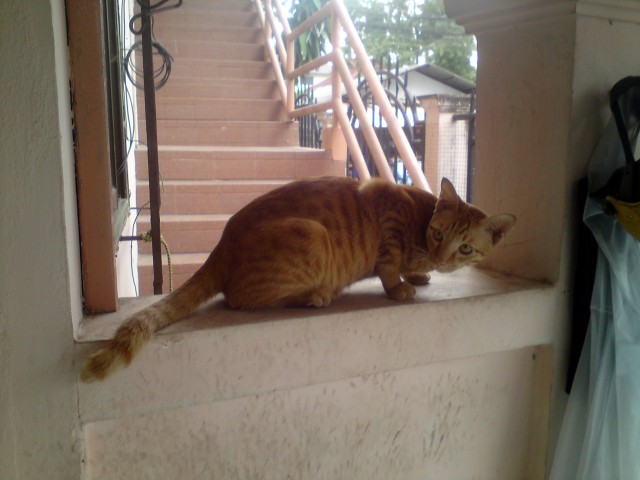 Ocicat
Question
Sesame
My daughter is currently living in Thai
Ocicat
Question
Sesame
My daughter is currently living in Thai
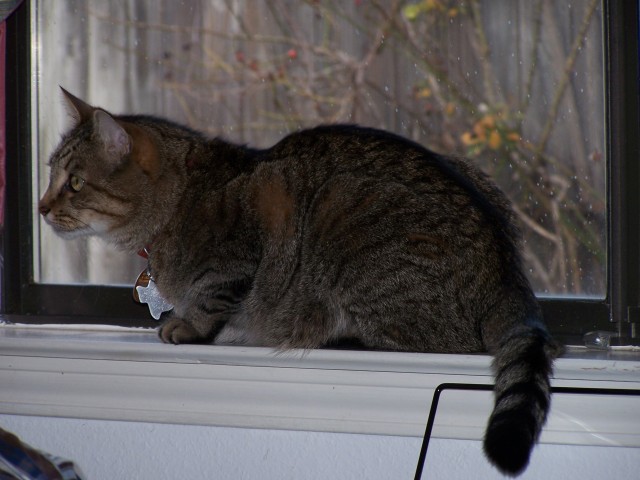 Cat gets angry at tail
Question
Rascal Rasputin
My indoor adult cat seems to g
Cat gets angry at tail
Question
Rascal Rasputin
My indoor adult cat seems to g
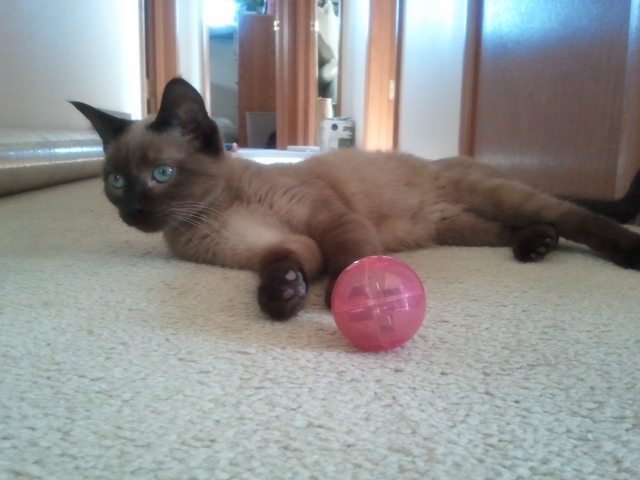 Cinnamon, mysterious Siamese
Question
Cinnamon - mysterious
Hi, I picked you
Cinnamon, mysterious Siamese
Question
Cinnamon - mysterious
Hi, I picked you
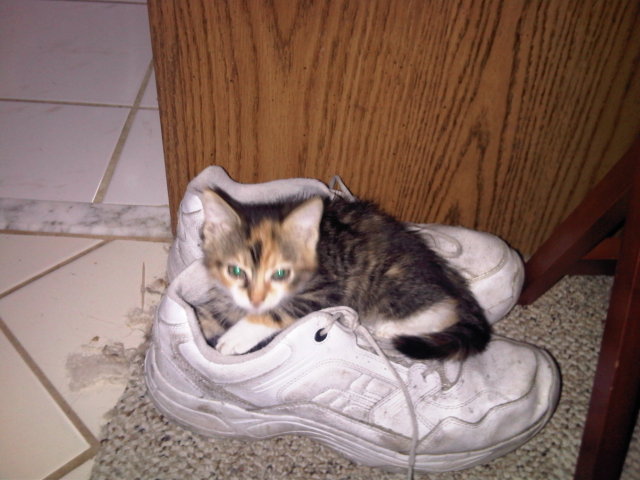 Kitten not eating
Question
Tiny
I have a 10 week old female kitten
Kitten not eating
Question
Tiny
I have a 10 week old female kitten
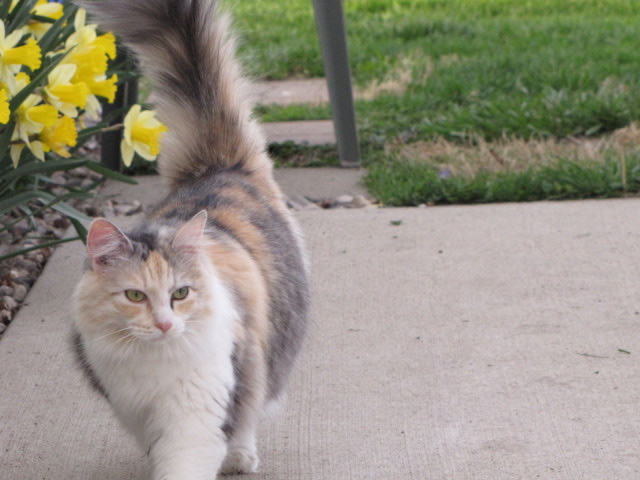 Breed
Question
Sammy Sammy
We found this cat out
Breed
Question
Sammy Sammy
We found this cat out